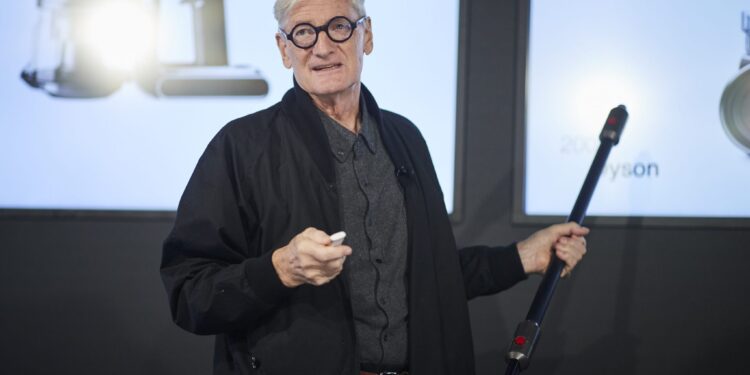
The family company that owns Dyson scooped £700 million in dividends from the firm last year, despite its plan to lay off nearly a third of its workforce in the U.K.
The Sir James Dyson-founded group enjoyed a 9% increase in revenues and profits in 2023 while it reaffirmed its commitment to pump £9 million per week into research and development in areas such as AI and robotics.
However, the household electronics giant is also embarking on a cost-cutting drive while trying to market its pricey products, including straighteners and headphones.
In July, Dyson said it planned to lay off 1,000 workers in the U.K., representing nearly a third of its 3,500-strong workforce in the country.
CEO Hanno Kirner said at the time that Dyson had to remain “entrepreneurial and agile” amid “increasingly fierce and competitive global markets.”
“Decisions which impact close and talented colleagues are always incredibly painful,” he said.
As the company released its earnings this week and announced the latest bumper dividend for its owners, it also reportedly unveiled a wave of surprise layoffs in Singapore.
Local media reported that unionized Singapore staff were left blindsided by the unexpected round of job cuts, the number of which was not disclosed.
A representative for Dyson didn’t immediately respond to a request for comment.
Despite the scale of this year’s dividend to the Dyson family’s Weybourne group, which owns the company, it points to the family making its own form of sacrifices.
Last year’s income of £700 million represented a £500 million fall on 2022’s £1.2 billion figure. In 2021, the family-owned business pocketed £1 billion in dividends.
Since 2018, the Weybourne Group has collected £5 billion in dividends, TheTelegraph reports.
Dyson is the U.K.’s fifth richest person, according to The Sunday Times Rich List, with a net worth of £23 billion. His fortune contracted by £2.2 billion in 2023.
The company he founded in the U.K. in 1991 shot to prominence with its range of bagless vacuums, but has expanded into hair care and lighting products, and even headphones.
Billionaire Dyson was criticized for his public backing of Brexit, before moving Dyson’s headquarters to Singapore in the aftermath of the vote in 2019.
The company was motivated to make the switch to be closer to its manufacturing and supply chain hubs, not to mention its large Asian customer base. Singapore’s free trade agreement with the EU also likely helped.
Dyson has been an outspoken critic of the U.K.’s economy, calling policies including high corporation tax “woeful” last year and pledging to invest in “modern, forward-looking economies elsewhere” in the future.
Dyson himself moved his residence back to the U.K. in 2021.







